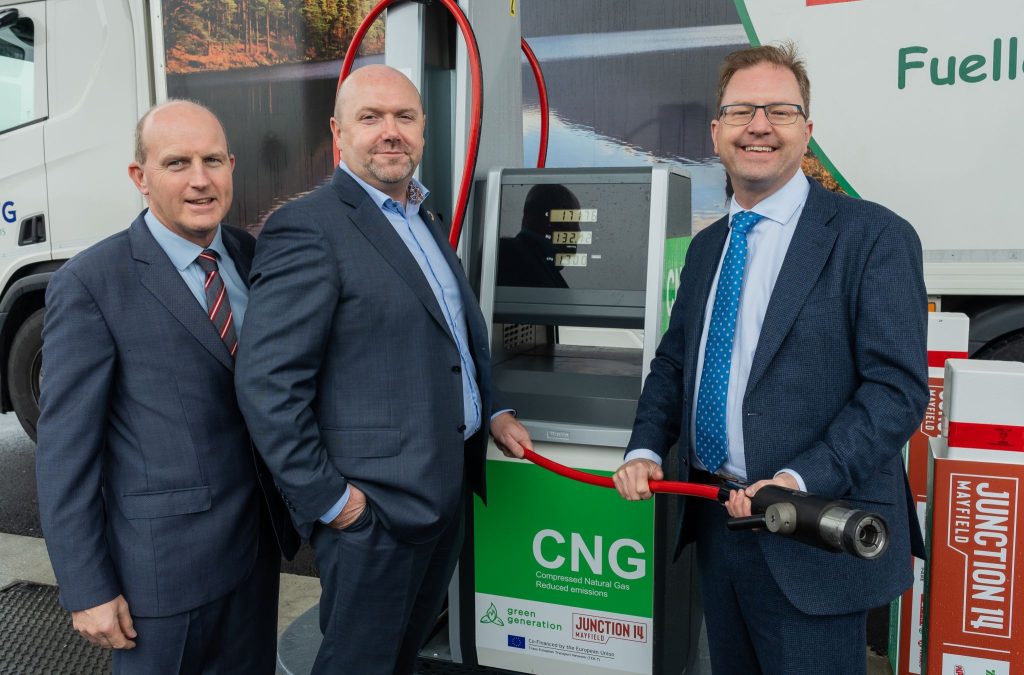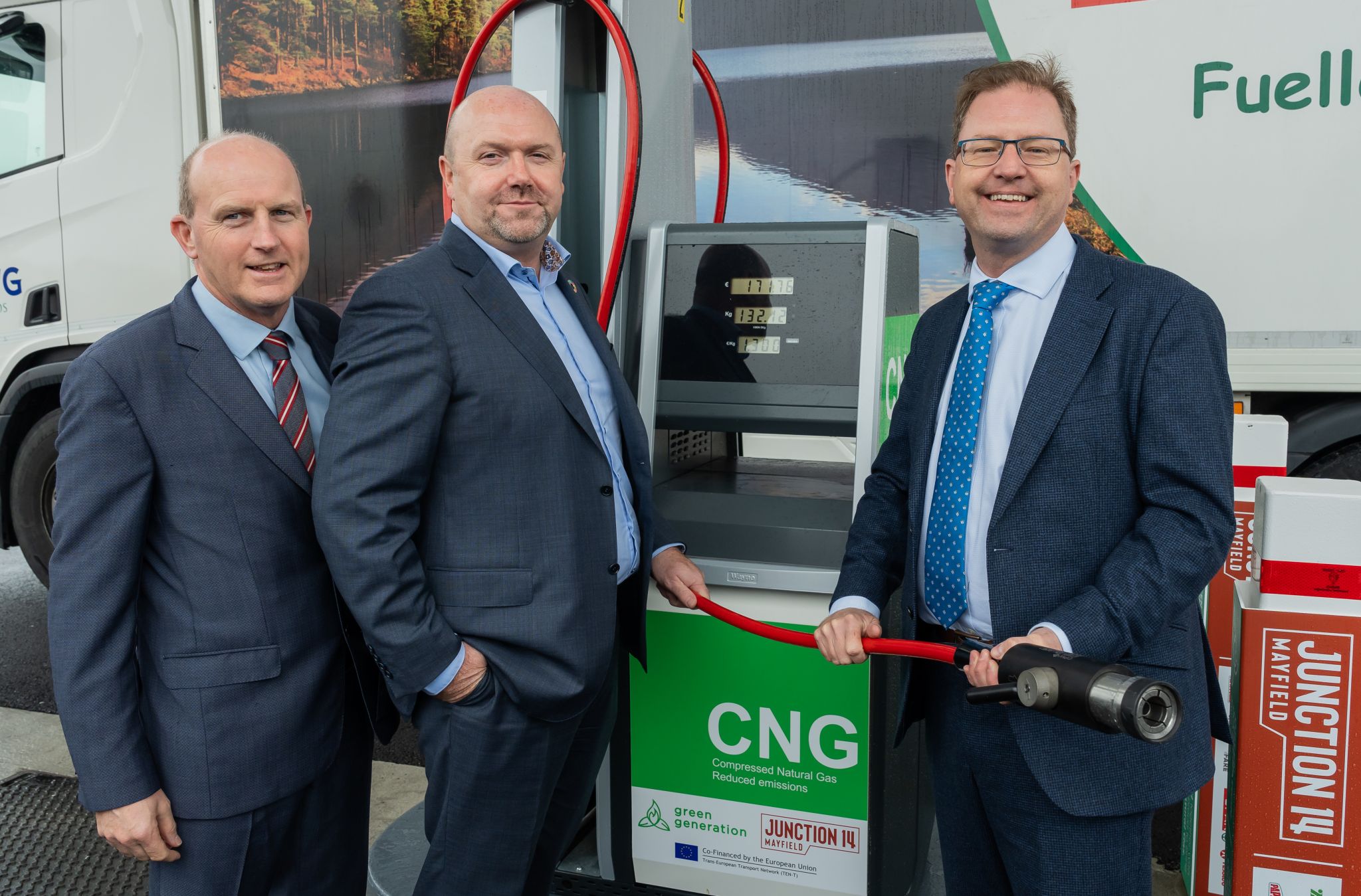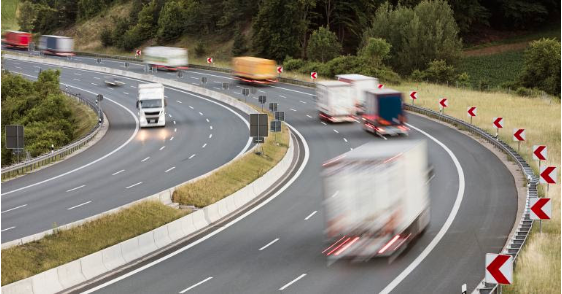Gas Networks Ireland has opened a new BioCNG (Bio Compressed Natural Gas) refuelling station at Junction 14 on the M7 motorway in Kildare, marking a major milestone in Ireland’s journey toward decarbonising its commercial transport sector, which is responsible for up to 20 per cent of the country’s transport emissions.

This development responds to the increasing demand for renewable gas in Ireland’s transport sector, with gas usage in transport consistently rising over the past few years.
From January 2023 to August 2024, gas consumption in transport has seen significant month-on-month (MoM) and year-on-year (YoY) growth, demonstrating a shift towards cleaner fuel alternatives as Ireland moves to decarbonise its commercial transport sector.
In 2023, gas demand from Ireland’s transport sector recorded consistent MoM increases, peaking with a 16 per cent increase in March. Year-on-year, the numbers reveal even more substantial growth: February saw an 11 per cent rise over the previous year, while April’s usage was up by a staggering 42 per cent. This upward trend has continued into 2024, with YoY gas usage increases reaching 65 per cent in July and 80 per cent in August.
Delivered by Gas Networks Ireland and Lidon Group, supported by the Causeway Programme, this station is set to transform one of Ireland’s busiest transport corridors into a cleaner and more sustainable route for heavy goods vehicles (HGVs). It is the sixth public CNG station to be completed and the tenth operational station in total (four private stations also complete).
This new BioCNG station will supply biomethane produced locally in Kildare by Green Generation, using local food and farm waste, supporting Ireland’s circular economy by converting waste into renewable energy.
BioCNG offers a cleaner alternative to diesel, reducing harmful emissions from HGVs and helping Ireland meet its ambitious climate action targets.
BioCNG cuts a HGV’s carbon emissions by up to 90 per cent2, reduces lifetime vehicle costs compared to diesel and helps Irish hauliers to reduce their scope 3 emissions.



